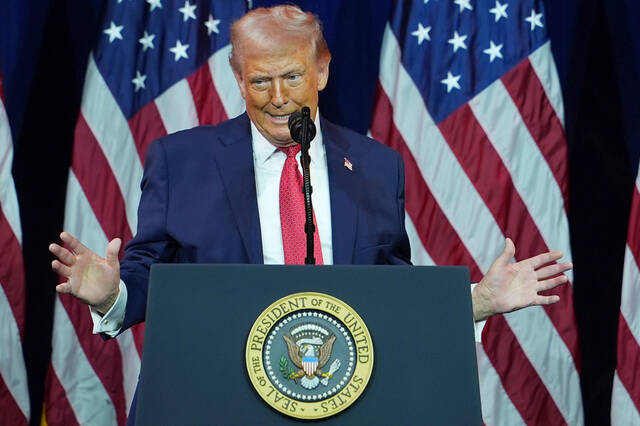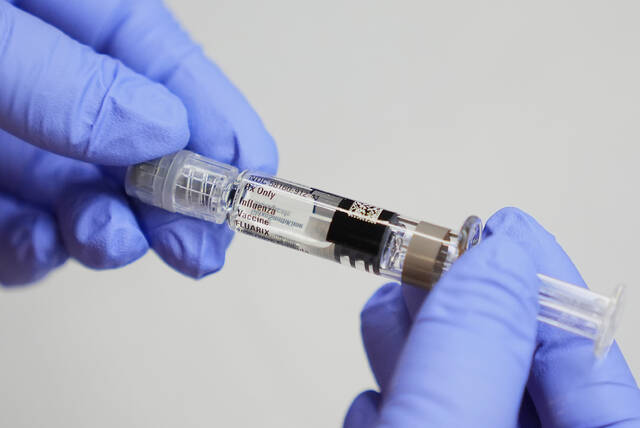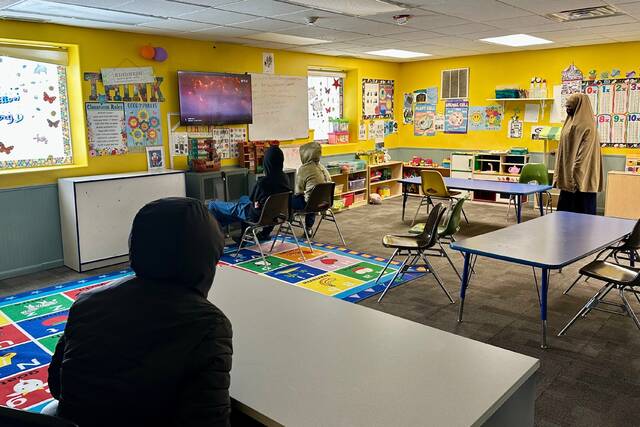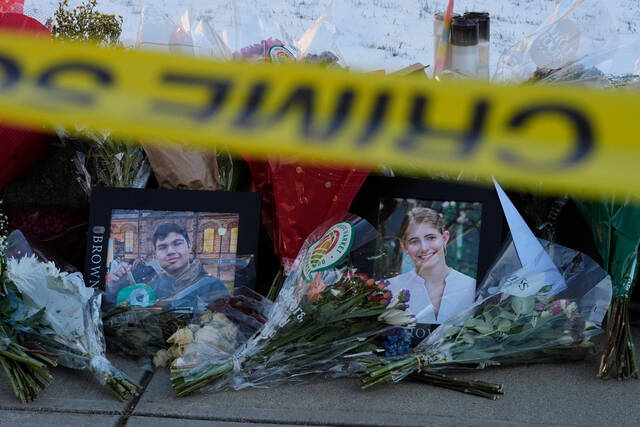NEW YORK — Hospitals have been rushing to stockpile a decades-old antimalarial drug touted by President Donald Trump and others as a treatment for the new coronavirus.
Hydroxychloroquine is being snapped up by medical systems at more than twice the typical pace as U.S. hospitals seek to build large inventories in anticipation of the medication’s potential use in patients with covid-19, the respiratory illness caused by the coronavirus.
From March 1 through March 17, U.S. hospitals bought an average of 16,110 units of hydroxychloroquine, compared with an average 8,800 units a month from January 2019 through February 2020, according to Premier Inc., which helps 4,000 member hospitals buy and manage their supplies.
Hydroxychloroquine and its more-toxic cousin chloroquine, which are also commonly used to treat rheumatoid arthritis and lupus, haven’t been approved by the U.S. Food and Drug Administration for covid-19. While Trump has touted some reports from doctors outside the U.S. suggesting hydroxychloroquine could be a promising treatment, there have been no large-scale clinical trials to support those claims.
Even so, the expected surge in the number of covid-19 patients has led health-care systems to try to stock up on potential treatments. With hospitals in regions with high infection rates already stretched, many are trying to ensure access to medications as more patients are diagnosed.
Soumi Saha, senior director of advocacy at Premier, said she’s found wholesale distribution channels have been entirely depleted of their hydroxychloroquine supply.
“We’re seeing hoarding as hospitals are very concerned that they have access to the right drugs,” she said. “People are so hungry for any information about what is or isn’t working that any positive news is going to create a run on any drug that’s mentioned.”
Some hospitals that have been unable to obtain hydroxychloroquine have turned to chloroquine, a sister drug with a more toxic profile, Saha said. From January 2019 to February 2020, U.S. hospitals ordered an average 149 units of chloroquine a month. Between March 1 and 17, they bought 2,357.
“In merely 17 days, U.S. hospitals purchased more chloroquine than they did in all of last year,” she said.
Large health systems aren’t the only ones looking to build up a store of the drugs. Some U.S. physicians have been prescribing hydroxychloroquine for patients, friends and family as a covid-19 treatment or as a precaution. Doctors have wide discretion to prescribe medications for unapproved uses.
A concierge doctor in midtown Manhattan who specializes in on-demand treatment of wealthy patients sighed with happiness earlier this month when he received a message affirming that he could obtain a lot of chloroquine. The doctor, who asked to speak anonymously so he could discuss treating wealthy clients, said he didn’t like the term stockpiling.
On Friday on New York’s Upper East Side, a health-care investor said that he had called more than six nearby pharmacies in an effort to fill a precautionary prescription for hydroxychloroquine. Each one had run out, he said.
The National Association of Chain Drugstores said in a statement that state boards of pharmacy have been made aware of an increase in prescriptions for hydroxychloroquine and chloroquine. The group urged care providers to dispense the drugs to those who “have a medically appropriate reason to have it, rather than simply to have it on hand ‘just in case.’”
Hydroxychloroquine sulfate tablets were in short supply throughout March, according to a report Thursday by the American Society of Health-System Pharmacists. The FDA hasn’t identified the drug as in shortage. Malaria and lupus-focused foundations and patient-advocacy groups have said they are concerned that shortages could disrupt those patients’ access to the medications.
The FDA didn’t immediately return requests for comment.
U.S. health authorities have urged drugmakers to expedite shipments of hydroxychloroquine and chloroquine to hospitals. The Trump administration has said it sees the drugs as a promising experimental treatment for covid-19, citing what they describe as reassuring safety profile. But chloroquine is known to have potential severe long-term side effects, such as the impairment of eyesight.
Dr. Anthony Fauci, director of the National Institute of Allergy and Infectious Diseases, said at a White House news conference Friday that the U.S. is exploring the use of chloroquine based on anecdotal evidence. The federal government is trying to strike a balance between identifying a drug that can be immediately made available to Americans with following protocol to determine if the drug is truly safe and effective, he said.
Despite the absence of any clinical evidence, the president has been an enthusiastic advocate of chloroquine in recent days.
“I’m probably more of a fan than maybe anybody,” Trump said of chloroquine during the news briefing. “It may work, it may not work. But I feel good about it. That’s all it is, it’s just a feeling. I’m a smart guy. I feel good about it. You’re going to see soon enough.”
Premier’s Saha, who is a pharmacist, hopes health authorities soon provide clearer guidance about the drugs’ use for Covid-19.
“It’s important for the CDC and professional societies to serve as the source of truth,” she said.







